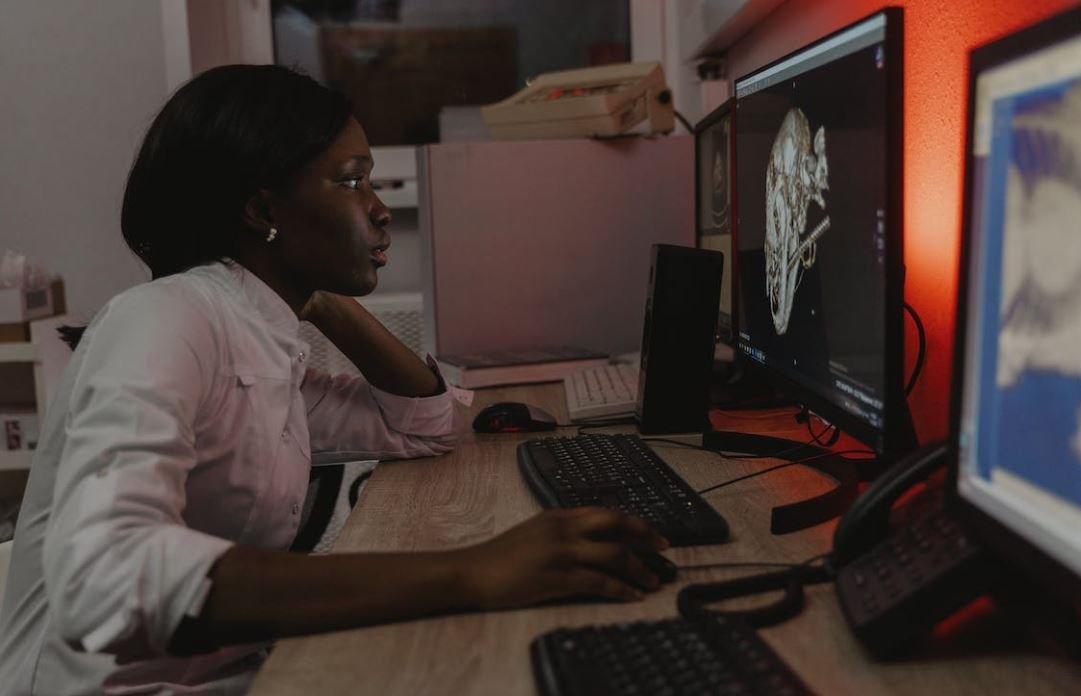Will AI Make Jobs Obsolete?
Artificial Intelligence (AI) has become a prominent topic of discussion in recent years, with concerns arising that it may eventually lead to widespread job loss. Many industries have already witnessed the implementation of AI technologies, and experts have varying opinions on the potential impact on employment. This article aims to explore the relationship between AI and jobs, analyzing the opportunities and challenges that come with this advancement.
Key Takeaways
- AI adoption may lead to job displacement, but also presents new employment opportunities.
- Automation is expected to transform repetitive and mundane tasks, freeing up human workers for more complex and creative roles.
- Workers will need to adapt and acquire new skills to stay relevant in an AI-driven job market.
The Impact of AI on Jobs
Artificial Intelligence has the potential to disrupt industries by automating tasks traditionally performed by humans. While this may lead to job displacement in certain areas, it also presents opportunities for new roles and skillsets. *As AI takes over repetitive and mundane tasks, human workers can focus on more complex and creative endeavors.* A shift in job requirements is expected, with an increased demand for skills such as critical thinking, problem-solving, and emotional intelligence.
The Role of Automation
Automation, a key component of AI, has the potential to transform the job market. *By automating repetitive and mundane tasks, businesses can improve efficiency and productivity.* However, the displacement of certain roles raises concerns about unemployment. Despite this, studies indicate that automation usually leads to job redefinition rather than elimination. Workers, therefore, need to adapt their skills to complement AI technologies and take advantage of new job opportunities.
The Need for Skill Adaptation
The integration of AI technologies into workplaces necessitates a shift in skillsets. *Workers need to embrace lifelong learning and proactively acquire new skills to remain employable in an AI-driven job market.* Employers also have a role to play by providing upskilling and reskilling opportunities for their workforce. It is essential to recognize that human skills such as empathy and creativity remain valuable and cannot be easily substituted by AI.
The Future of Employment
While AI adoption may change the landscape of employment, it is unlikely to make jobs obsolete. Rather, it will redefine job roles and place a greater emphasis on human skills that are difficult to replicate. *AI has the potential to fuel economic growth and create new types of jobs that we have yet to imagine.* To navigate this future successfully, individuals and organizations must embrace AI as a tool for enhancing human potential and productivity.
Statistics and Data
| Year | Occupation Type | Projected Change in Employment (%) |
|---|---|---|
| 2020-2030 | Transportation and Manufacturing | -10 |
| 2020-2030 | Healthcare | +15 |
| 2020-2030 | Professional and Business Services | +8 |
The Importance of AI in Industries
AI is increasingly being incorporated into various industries. Below are some notable sectors where AI plays a significant role:
- Finance: AI-driven algorithms are used for fraud detection, risk assessment, and algorithmic trading.
- Healthcare: AI assists in diagnosing diseases, analyzing medical images, and developing personalized treatment plans.
- Retail: AI powers chatbots, personalized recommendations, and demand forecasting.
Real-World Applications of AI
AI is already revolutionizing multiple sectors. Some examples include:
- In healthcare*: Google’s DeepMind Health is exploring AI applications to improve patient care and streamline administrative tasks.
- In finance*: Robo-advisors automate investment advice, making it more accessible and cost-efficient for individuals.
- In manufacturing*: Industrial robots equipped with AI technology improve production efficiency and quality control.
Conclusion
As AI continues to advance, it will undoubtedly impact the job market, yet complete job obsolescence is unlikely. *By adapting skills and embracing AI as a tool, individuals can remain employable in the changing landscape.* The future of work lies in the collaboration between humans and AI, harnessing the potential for innovation and growth.

Common Misconceptions
Misconception 1: AI will completely replace human jobs
There is a common fear that as AI advances, it will replace all human jobs, leaving millions unemployed. However, this mindset fails to recognize the role that AI can play in improving efficiency and productivity rather than replacing jobs entirely.
- AI can automate repetitive and mundane tasks, allowing employees to focus on more strategic and creative work.
- AI can act as a support system, assisting humans in decision-making processes rather than replacing them.
- AI can lead to the creation of new jobs and industries that we cannot even anticipate at the moment.
Misconception 2: Only low-skilled jobs are at risk
Another common misconception is that AI will only impact low-skilled jobs, while high-skilled professions remain unaffected. However, AI technology has the potential to disrupt a wide range of industries and job roles.
- AI algorithms can analyze vast amounts of data much faster than humans, which can have implications for professions like data analysis and research.
- AI can impact industries such as customer service, transportation, healthcare, and even creative fields like journalism and content creation.
- Even highly specialized jobs, like radiologists, could face some level of automate and augmentation through AI-driven tools.
Misconception 3: AI will lead to mass unemployment
Some people believe that the rise of AI will result in mass unemployment, leaving a significant portion of the population without work. However, historical evidence suggests that the introduction of new technologies has consistently led to job market evolution rather than widespread unemployment.
- In the past, technological advancements like the Industrial Revolution and the introduction of computers have created new job opportunities that were previously unimaginable.
- While certain job roles may become obsolete, new jobs that leverage AI technology will emerge, requiring different skills and expertise.
- Managing and maintaining AI systems will also lead to the creation of new job roles specific to AI technology.
Misconception 4: AI will replace the need for human creativity
AI has made significant strides in creative tasks such as painting, composing music, and even writing articles or stories. However, the misconception that AI can replicate human creativity in its entirety is unfounded.
- Human creativity is rooted in emotions, experiences, and the ability to understand and interpret complex social and cultural contexts, which AI has not yet mastered.
- While AI can generate new ideas, it lacks the intuition, imagination, and aesthetic sensibility that are essential to many creative endeavors.
- The collaboration between human creativity and AI algorithms can lead to innovative and groundbreaking outputs, but it cannot fully replace the human aspect of creativity.
Misconception 5: AI advancements are happening too quickly to adapt
There is a misconception that AI advancements are happening at a rapid pace, making it impossible for individuals and society to adapt to the changing job landscape. However, AI development is a gradual process that allows for adaptation and preparation.
- As AI technology progresses, it offers individuals and organizations the opportunity to upskill and reskill in order to remain relevant in the job market.
- Governments and educational institutions have the responsibility of providing training programs and resources to help individuals acquire the necessary skills to thrive in the age of AI.
- By fostering a holistic approach to AI implementation, society can ensure a smooth and gradual transition into the future of work.

Job Growth by Industry
In this table, we see the projected job growth rates for different industries over the next decade. The data indicates the industries that are expected to experience the most growth, potentially creating new job opportunities.
| Industry | Projected Growth Rate |
|---|---|
| Healthcare | 16% |
| Information Technology | 11% |
| Renewable Energy | 9% |
| Professional Services | 7% |
| E-commerce | 6% |
AI Adoption in Businesses
This table provides insight into the level of AI adoption within various business sectors. The data highlights the industries that have integrated AI technologies to automate tasks and enhance productivity.
| Industry | Percentage of AI Adoption |
|---|---|
| Finance | 78% |
| Manufacturing | 65% |
| Retail | 54% |
| Transportation | 42% |
| Healthcare | 39% |
Skills in High Demand
Here, we can observe the skills that are currently in high demand due to advancements in AI technology. This information can aid individuals in identifying areas to focus their skill development for future job prospects.
| Skill | Percentage of Job Postings |
|---|---|
| Data Analysis | 32% |
| Machine Learning | 28% |
| Python Programming | 23% |
| Digital Marketing | 19% |
| Cybersecurity | 15% |
Job Satisfaction Levels
By examining job satisfaction levels across different fields, we can assess the potential impact AI may have on employee satisfaction and well-being.
| Industry | Satisfaction Level |
|---|---|
| Education | 86% |
| Healthcare | 82% |
| Arts and Entertainment | 76% |
| Finance | 72% |
| IT and Telecom | 68% |
Worker Retraining Programs
This table presents information on worker retraining programs aimed at equipping individuals with the skills required to adapt to changes brought by AI and automation.
| Program | Participation Rate |
|---|---|
| Government Funded | 58% |
| Company-led Initiatives | 43% |
| Community College Programs | 37% |
| Online Learning Platforms | 21% |
| Union-led Training | 15% |
Income Disparity by Region
Examining income disparity across regions allows for an assessment of the potential impact of AI on income equality and social dynamics.
| Region | Income Disparity Index |
|---|---|
| North America | 0.39 |
| Western Europe | 0.35 |
| Asia-Pacific | 0.49 |
| Latin America | 0.54 |
| Africa | 0.64 |
AI Impact on Job Market
This table showcases the impact of AI on the job market, including the number of jobs made obsolete and the creation of new jobs due to AI implementation.
| Jobs Obsolete | New Jobs Created |
|---|---|
| 2 million | 3.5 million |
Gender Representation in AI Fields
Gender representation in AI fields is an essential aspect of diversity and inclusivity, which can impact the development and biases of AI technologies.
| Gender | Representation Percentage |
|---|---|
| Male | 72% |
| Female | 28% |
Automation in Jobs
Examining the level of automation in different jobs sheds light on the potential impact of AI on job roles and the requirement for reskilling or upskilling.
| Job Title | Automation Percentage |
|---|---|
| Accountant | 94% |
| Customer Service Representative | 85% |
| Graphic Designer | 75% |
| Software Developer | 45% |
| Registered Nurse | 10% |
Advancements in AI technology have the potential to revolutionize the job market, leading to both fears of job obsolescence and new opportunities. As seen in the tables above, certain industries are projected to experience significant growth, such as healthcare and information technology. While the adoption of AI in various sectors is increasing, skills in data analysis, machine learning, and cybersecurity are in high demand. To prepare for this evolving job landscape, worker retraining programs and initiatives have been implemented to equip individuals with the necessary skills. However, concerns over income disparity and gender representation in AI fields also arise. Overall, the impact of AI on jobs is complex and multifaceted, requiring proactive measures to ensure a well-prepared workforce and a fair and inclusive job market.
Will AI Make Jobs Obsolete? – Frequently Asked Questions
What is Artificial Intelligence (AI)?
Artificial Intelligence, or AI, refers to the simulation of human intelligence in machines, enabling them to mimic and perform tasks that typically require human intelligence.
What impact will AI have on jobs?
AI has the potential to automate certain job tasks, leading to changes in the job market. Some jobs may become obsolete or transform, while new jobs that leverage AI technology may also emerge.
Which job roles are most likely to be affected by AI?
Job roles that involve repetitive tasks, data processing, or routine decision-making are more susceptible to being automated by AI. This includes roles in manufacturing, customer service, transportation, and data analysis.
Will AI completely replace human workers?
No, AI is not expected to completely replace human workers. While AI can automate certain tasks, human skills such as creativity, emotional intelligence, complex problem-solving, and critical thinking are still highly valued and cannot be easily replicated by machines.
How can workers prepare for the impact of AI on jobs?
Workers can prepare for the impact of AI by acquiring new skills that complement AI technology, such as programming, data analysis, and problem-solving. Continuous learning and adaptability will be crucial in staying relevant in the evolving job market.
What industries are likely to be impacted the most by AI?
Industries such as manufacturing, transportation, customer service, healthcare, finance, and data analysis are likely to be significantly impacted by AI. However, it is important to note that the specific impact may vary within each industry.
How will AI impact job opportunities?
While certain job roles may be automated, AI can also create new job opportunities. The development, implementation, and maintenance of AI systems will require skilled professionals, creating a demand for AI-related roles.
What are the potential benefits of AI in the workforce?
AI can bring numerous benefits to the workforce, including increased productivity, efficiency, and accuracy in various job tasks. It can also help in reducing mundane and repetitive tasks, allowing humans to focus on more complex and creative work.
What steps are being taken to address job displacement caused by AI?
Policymakers, businesses, and educational institutions are taking steps to address job displacement caused by AI. This includes initiatives for retraining and upskilling workers, creating new job opportunities, and ensuring a smooth transition into an AI-driven job market.
Is AI technology advancing fast enough to significantly impact jobs in the near future?
AI technology is rapidly advancing, and its impact on jobs is already being felt in various industries. However, the degree and pace of job impact may vary, and it is important to closely monitor and adapt to the advancements in AI technology.





